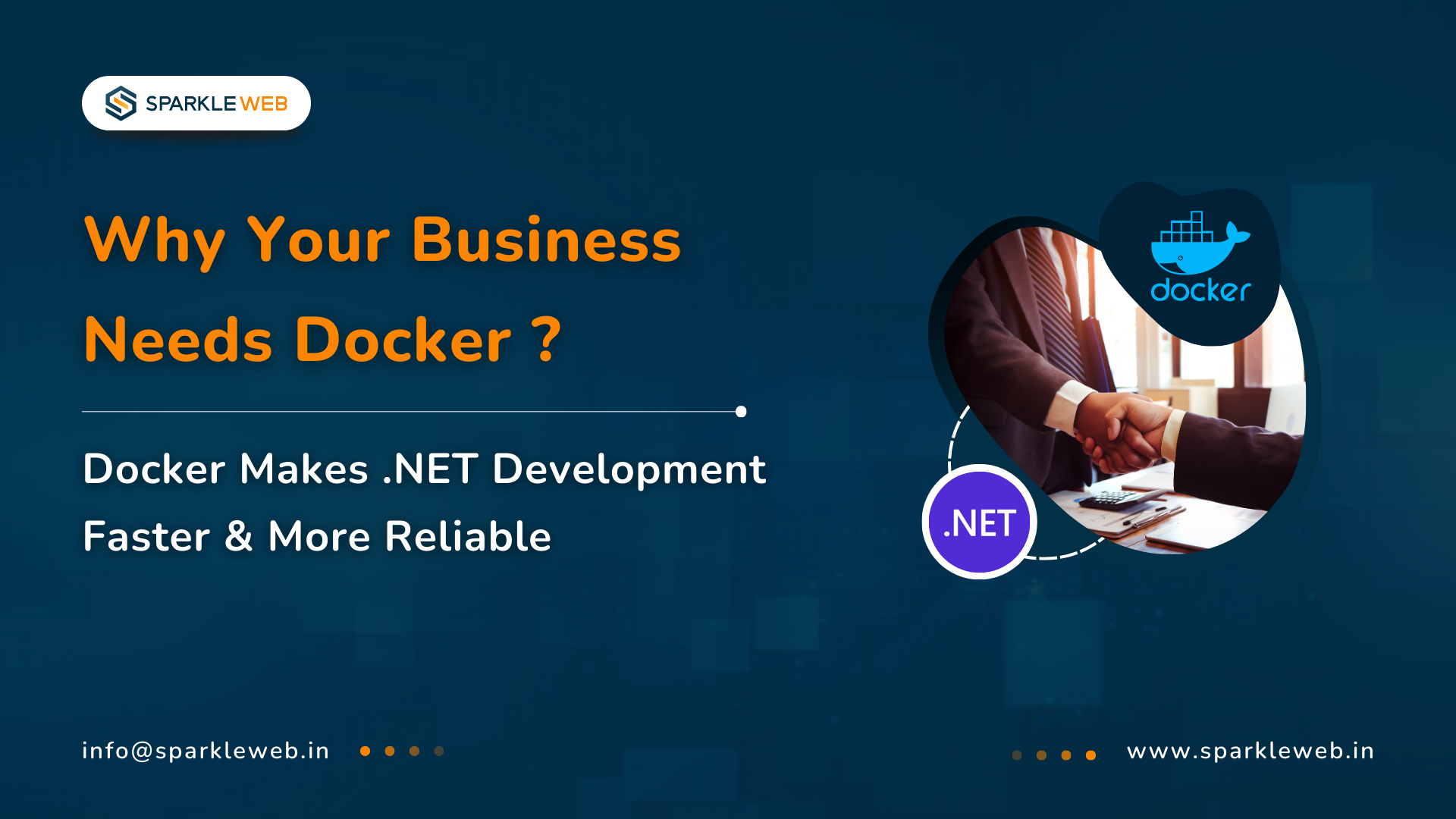-
The software works on one developer’s computer but not on someone else’s.
-
Setting up a new developer’s machine takes days.
- Deploying updates to live servers is painful and risky.
- Scaling the system when more users come in becomes hard.
1. Speed is Everything – And Docker Makes Things Faster
Now imagine a different situation. You give that developer a simple instruction:
docker compose up
No more:
-
“I don’t have the right version of SQL Server.”
-
“It’s working for me but not for you.”
- “What libraries do I need to install first?”
-
Saving hours or even days every time someone new joins.
-
Launching products faster.
- Making customers happy sooner.
2. Consistency Brings Confidence
-
On your laptop
-
On the test server
- On the live server
-
Fewer surprises after deployment.
-
Less time spent fixing things at the last minute.
- Happier customers because your app works reliably.
- Less stress for your development team.
3. Scale Smarter, Not Harder
-
The app slows down under heavy traffic.
-
You need more servers to handle the load.
- One part of the system breaks, affecting everything else.
-
One container runs the payment service.
-
One container handles orders.
- One container handles notifications.
-
If you need to handle more payments?
-
Just add more payment containers.
- No need to touch the other parts.
-
Easier to grow without rebuilding everything.
-
Faster response to changes in demand.
- Less risk of one part breaking the whole system.
4. Cut Costs Without Cutting Corners
-
You use fewer servers.
-
You pay less for cloud services (whether it’s AWS, Azure, or others).
- You don’t waste resources.
-
Less spending on servers.
-
Less manual work.
- More efficient teams.
5. Safety and Isolation You Can Trust
-
If one part of your app crashes, the others keep running.
-
If one container has a security issue, it doesn’t affect the others.
- If you need to update or restart something, you don’t have to stop everything else.
-
Better reliability.
-
Safer updates.
- Less downtime (which means fewer customer complaints).
Real Story: How Docker Helped Us
-
Onboarding time dropped from 2 days… to less than 30 minutes.
-
Our deployment process became fully automated.
- Deploying to live servers? Just one click.
-
Functionality Testing – This checks whether all the features work as expected. For example, if your website has a login system, you need to test if users can log in and log out correctly.
-
There were fewer bugs after launching new features.
- Stakeholders were happier because things “just worked.”
Final Thoughts: Docker is a Business Tool, Not Just a Developer Tool
-
Docker helps developers work faster.
-
Docker helps your app scale more easily.
- Docker saves money on servers.
- Docker reduces bugs and problems.
-
Docker helps launch products faster.
A Business Case for Docker in 2025
-
Over 70% of enterprise companies are already using containers in production.
-
Companies that adopted Docker saw a 20–40% reduction in infrastructure costs in their first year.
- Developer onboarding time drops by up to 60% with Dockerized environments.
- Businesses using Docker report 50% fewer bugs after deployment.
Ready to Dockerize Your Business?
-
Personalized Docker implementation
-
Containerized CI/CD pipelines
- Cloud optimization with Docker on Azure/AWS
- .NET + Docker consulting and support
Contact us today for a free consultation!



Dipak Pakhale
A skilled .Net Full Stack Developer with 8+ years of experience. Proficient in Asp.Net, MVC, .Net Core, Blazor, C#, SQL, Angular, Reactjs, and NodeJs. Dedicated to simplifying complex projects with expertise and innovation.
Reply